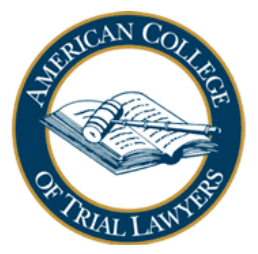Tanker Truck Wreck Results in $9.45 Million Settlement
A company that was replacing highway reflectors on Interstate 95 has confidentially settled a lawsuit that alleged it had improperly allowed traffic to back up for more than 6 miles, resulting in a deadly tanker truck crash that killed an entire family.
Traffic information from cell phone data turned out to play a critical role in the case, said Kurt Dixon of Riddle & Brantley, one of the firms representing the plaintiffs.
Plaintiffs alleged that the highway construction company violated several N.C. DOT rules by working more slowly than required by the contract, failing to monitor the traffic backup; failing to get off the road to allow the backup to disperse and by failing to switch traffic controls in a work zone to a lane closure with cones and barrels.
As a result, Raleigh auto wreck lawyers argued, traffic backed up in a dangerous area along the highway, increasing the risk of a crash.
Killed in the crash were the 25-year-old husband, his wife, 31, and their two daughters, ages 3 and 1. “This is an extremely tragic case,” said David Kirby of Edwards Kirby in Raleigh, the other firm representing the family. “A young family was completely wiped out in an instant.”
The total settlement in the case was $9.45 million. That came from the company replacing the reflectors and from the insurance limits of the two trucks involved in the crash.
The wreck occurred when traffic slowed to a crawl on I-95, resulting in a lengthy backup. The driver of a tanker truck failed to notice the slow-down, and crashed into the family’s car, resulting in a fireball that killed the truck driver and the family. Another tractor trailer, which may have been blocking the view of the tanker driver, allegedly pulled out of the way just before the crash, leaving the tanker truck driver with nowhere to go. That company also settled a claim against it.
Once those claims were settled, discovery began regarding the company replacing the highway reflectors. The reflector replacement operation was a so-called “moving operation,” in which the work proceeded down the road using work trucks followed by trucks with arrow signs to direct traffic into the open travel lane. There were signs posted on the highway alerting motorists of work ahead, but the travel lane where work was performed was not closed. The alternative would have been to block traffic with a stationary lane closure, using cones and barrels.
An important issue was the cause of the traffic backup. The defendant company argued that it did not cause the backup. It pointed to a deputy sheriff who was at the operation who said traffic was flowing smoothly around the operation, and a company worker who drove through the traffic shortly before the wreck and testified there was not a significant backup. The slow-down at the site of the accident, which was 6 miles from where the reflector replacement trucks were working, was not caused by their work, the company argued.
Plaintiffs used cell phone data from an on-line search company to demonstrate that traffic was backed up – and sometimes stopped – throughout the six miles from the highway work to the site of the accident. “The cell phone data was crucial – it showed that the back-up started at the site where the reflector replacement was occurring and extended, uninterrupted, all the way to the site of the wreck,” Dixon said.
The company that provided the cell phone data fought subpoenas for its testimony, and plaintiffs ended up hiring an expert to interpret the Google data.
Plaintiffs contended that DOT regulations required the moving operation to travel at least 3 mph for safety reasons, although DOT supervisors said they would give such operations some leeway. Plaintiffs alleged that the company’s own records showed that the operation was moving at less than half the 3 mph speed. If the 3-mph safety requirement could not be met, the operation needed to get off the road and allow traffic to clear or switch to a lane closure with cones and barrels, plaintiffs’ experts said.
With the help from Edwards Kirby Raleigh truck accident attorneys, the company disputed all these claims. Additionally, it argued that causation was not established because the tanker driver had an unobstructed view for more than a third of a mile, yet never slowed down for the slow-moving traffic.
The case settled shortly before trial.
Settlement Report
- Wrongful Death, Personal Injury
- Amount: $9.45 million
- Case name: Confidential
- Date of Settlement: November 2019
- Attorneys for Plaintiffs: Kurt Dixon of Riddle & Brantley, David F. Kirby and Bill Bystrynski of Edwards Kirby, LLP, in Raleigh













We’re Here to Help
Call 919-780-5400 or fill out our online form to request a free consultation. You won’t pay unless we win!